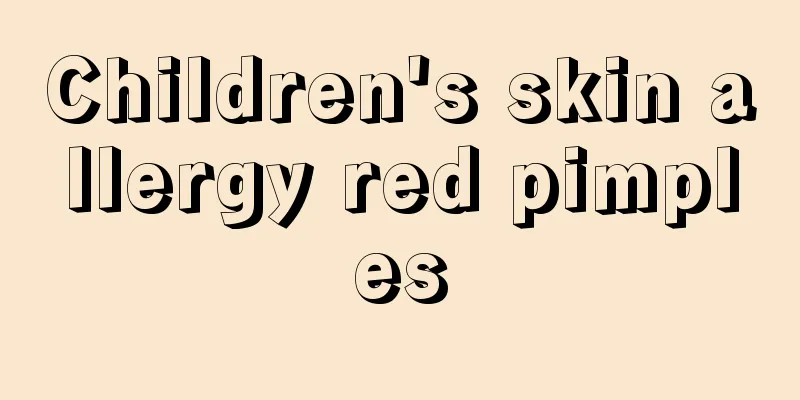How to care for newborns with respiratory distress

|
Respiratory disease is a common disease that is greatly affected by the environment. As modern environmental pollution becomes more and more serious, more and more people are suffering from respiratory diseases. People with relatively weak constitutions are particularly susceptible to such diseases. For example, premature newborns are prone to respiratory diseases, and a common symptom is neonatal respiratory distress. So, how should newborns with respiratory distress be cared for? Patients with premature respiratory distress syndrome may cry normally when they are just born, but then experience difficulty breathing, groaning, and irritability within 6 to 12 hours after birth. The symptoms gradually worsen, and in severe cases, sleep apnea occurs. The skin turns blue and gray due to lack of oxygen, and those with severe lack of oxygen will die within three days of birth. Milder cases have a later onset, which may occur around 24 to 48 hours after birth. The breathing difficulties are not obvious, and the degree of skin cyanosis is relatively mild. The condition will improve within three or four days after treatment. The general care methods are as follows: 1. Babies with neonatal respiratory distress syndrome are sent to the neonatal intensive care unit as soon as they are born, and treatment and care are carried out in the hospital. 2. Premature babies should be given more intensive care. They should be placed in an incubator and have their body temperature, breathing, heart rate, etc. monitored with a monitor. Intravenous feeding should be used for children with swallowing difficulties. 3. Keep the airway open. 4. To improve the symptoms of hypoxia, oxygen supply will be provided. For mild cases, nasal congestion, mask or continuous positive airway pressure breathing will be used. For severe cases, endotracheal intubation and ventilator will be required, and the oxygen supply method will be adjusted at any time according to changes in the condition. The above is the care method for respiratory distress in premature newborns. Such a disease is a matter of life and death for newborns, and it can be life-threatening if not handled properly. In fact, the phenomenon of neonatal respiratory distress can be prevented. If pregnant women find such problems when they are pregnant, they can receive treatment to prevent premature birth. |
<<: What are the best treatments for acute laryngitis in children?
>>: Clinical manifestations of hemorrhage disease of the newborn
Recommend
What are the causes of enuresis in children? This is the truth!
There are many reasons for enuresis in children. ...
Can expired diapers still be used?
In order to save time and energy on shopping, or ...
What to do if the baby falls off the bed
Babies have very irregular daily routines. Even i...
What are the precautions for children's emergency treatment?
In general, when a baby has some minor problems, ...
What to do if your child has bloating? Abdominal massage
Many babies experience bloating after meals due t...
How many months should babies suck their fingers?
It is a common phenomenon for babies to suck thei...
Child coughs and spits white foamy sputum
Children's colds can easily lead to high feve...
Baby vomits severely after vaccination
For infants and young children, vaccination is a ...
How to treat abdominal cysts in children
Children are the fruit of their parents' love...
What medicine should children take for colds and flu?
The weather is hot and cold, and the seasons chan...
What are the symptoms of iron deficiency in babies?
When it comes to the symptoms of iron deficiency ...
What is the height and weight of a one year and ten month old baby?
The growth of babies is an issue that many parent...
Is it good for babies to sleep during the day?
I believe that many mothers will have some troubl...
Symptoms of calcium deficiency in 9-month-old babies
9-month-old babies are in the toddler stage, and ...
What should I do if my one-year-old and two-month-old baby doesn't like to eat?
Summer is here and the weather is scorching hot. ...









